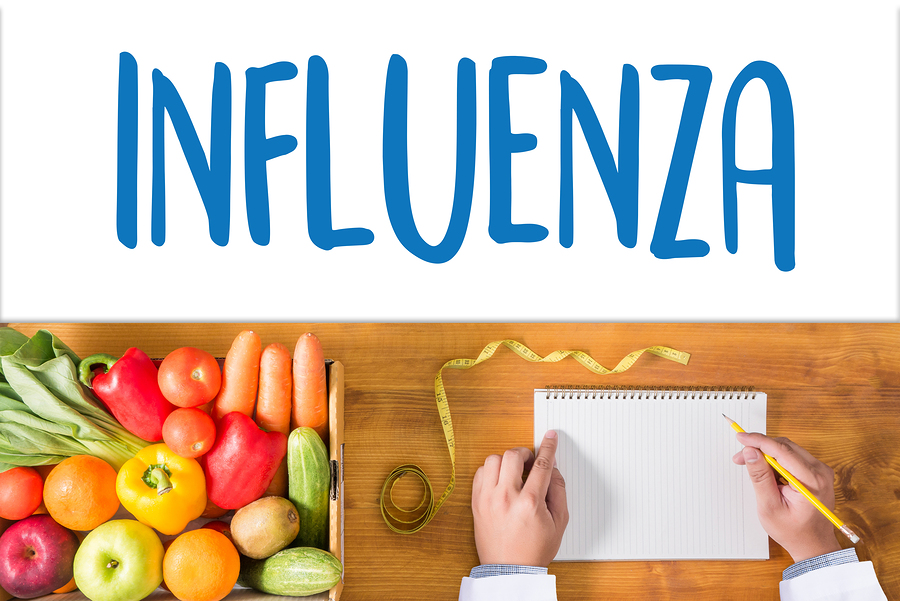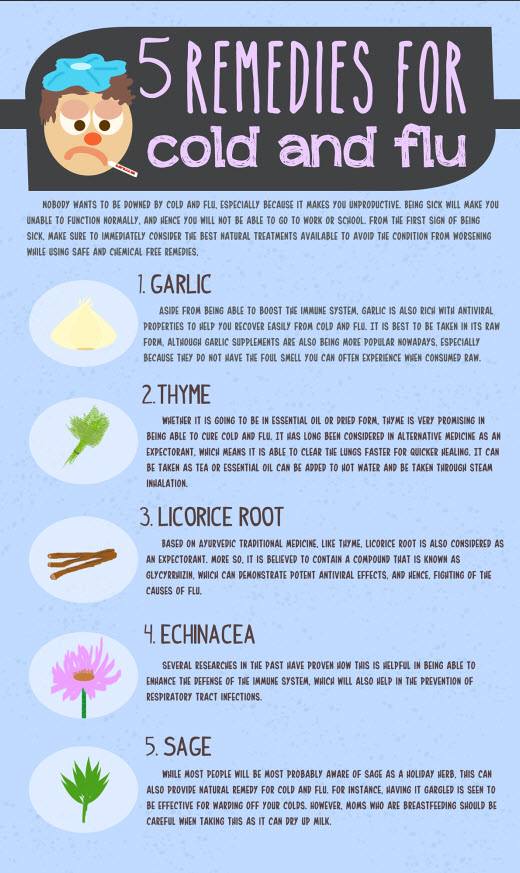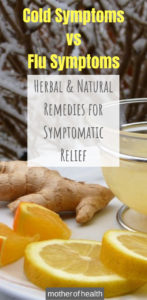Despite having similar signs, cold symptoms vs flu symptoms have VERY different results.
Cold and Flu are some of the most misused words in medical science. Blocked sinuses and a stuffed nose are almost always dismissed as “just a cold”. We carry on our everyday lives, hoping that the symptoms will run their course.
But, it is time to think about this course of action in a bit more detail. Around 200,000 people in the U.S. are hospitalized for Influenza each year; around 36,000 of whom die due to the virus.
Symptoms of a common cold and the potentially-deadly flu virus appear to be very similar. This report will educate you on how to tell the difference between them so you can keep yourself and loved ones safe.
Cold Symptoms
vs
Flu Symptoms
What is the Common Cold?
The common cold is an upper respiratory tract infection. A variety of viruses cause the infection, but the infection is almost always mild in nature.
The common cold gets passed from person to person by body fluids produced during cough and sneezes. Another way colds spread is through direct contact with a contaminated surface.
Contrary to what many believe, being in the cold weather does not actually cause the common cold.
The Science of Common Cold Viruses
More than 200 different varieties of the virus can cause the common cold. The most common of these being rhinoviruses (this causes around 30-40% of colds in adults).
Many different viruses cause the common cold. Because these viruses are constantly mutating to develop new strains, the body is not able to build immune defenses to the illness.
This is why you have many colds throughout your lifetime; you just don’t develop immunity.
Young children experience on average 6 to 12 colds per year. While the cold has no direct relation to causing the common cold, it does occur more often during the colder months.
Who is at Risk of Catching a Cold Virus?
There are a variety of risk factors that come into play when it comes to determining how likely you are to get the common cold.
Children – Adults – Elderly
Infants and young children have not yet developed immunity to many common viruses. This means they are at an increased risk of developing the common cold.
Over time adults develop a limited immunity to some strains of the common cold so become ill less often.
The elderly have an increased risk of developing the common cold as their immune system deteriorates with age.
The Common Cold Season
More people get the common cold during fall, winter, or during the rainy season. Again, the illness is not directly related to the weather, but medical experts say these are the times we spend more time indoors in near to each other.
Weakened Immune System
People with weakened immune systems have an increased likelihood of developing the common cold. This includes people with excessive fatigue, emotional distress, and disorders of the immune system.
Symptoms of the Common Cold
It is likely that a cold will develop gradually over a series of two or three days. People are most contagious during the early stages. This is the duration in which symptoms are likely to include a runny nose and sore throat.
Symptoms will vary depending on which doshas are involved.
-
A sore throat
-
Headaches
-
A cough
-
Sneezing
-
Pressure in the ears and face (blocked sinuses)
-
Loss of taste and smell
-
A high temperature or fever
-
Muscle aches and pains
-
Feeling exhausted and need to lie down
-
Mucus
-
No taste/smell
-
Chapped lips
-
Low energy
-
Itchy or burning eyes
-
Coated tongue
-
Sensitivity
-
Dizzy
You will experience more nasal symptoms with a cold than with influenza. The nose will produce a watery secretion for the first few days, that will later thicken and become darker in color.
Infants and young children may also become fussy and have decreased appetite.
How Long Does a Cold Last?
The duration of colds can vary, but colds to tend to last for longer than flu. Those who are still sick after two weeks or longer most likely have a cold; although a cold could also last as little as two days.
How Serious is the Common Cold?
How Should I Treat it?
Generally, a cold is nothing to worry about unless you are elderly or are caring for an infant. In that case, you should watch it carefully in case of symptom development or complication.
There is usually no reason to contact a doctor for a common cold. Keeping warm, getting rest and sleep and drinking plenty of water and garlic, lemon tea below will help in a speedier recovery.
Medical treatment consists rest and symptomatic treatment. Holistic healthcare systems like Ayurveda, treat the unique set of symptoms that manifest in the person as opposed to having one set of treatments for each person. In other words, Ayurveda treats the individual who has the illness rather than the illness itself.
What is the Flu?

Influenza, commonly known as ‘The Flu’, is a contagious respiratory illness caused by an influenza virus. These infect the nose, throat, and lungs.
The flu viruses spread via airborne droplets produced when infected individuals sneeze, cough, or talk. The virus transmits through touching a surface contaminated, then touching your mouth, nose, or eyes.
Influenza is a more serious illness than the common cold because there's the potential for medical attention. Complications can include:
- Bacterial pneumonia
- Ear infection
- Sinus infection
- Worsening or chronic conditions such as heart failure, asthmas or diabetes.
The Science of the Flu Virus
Influenza viruses can be unpredictable. But even if the infected person is healthy to begin with, symptoms are likely to be moderately severe. For those who are unhealthy, the infection has the potential to be fatal.
The virology of Influenza is an interesting topic. The Influenza viruses are a group of RNA viruses that have a very high rate of mutation. The mutation rate is caused by rapid change in viral genetics produced by antigenic drifts.
‘Antigenic drift’ is a sudden significant change in the virus genetics which allows the virus to infect a new host quickly and overcome any protective immunity one may have developed to the virus previously.
This is the big reason behind the semi-frequent emergence of flu pandemics. These strains are often of animal origins, such as bird flu or swine flu.
Who is at Risk of Getting the Flu?
The risk factors that predispose people to an infection of the Flu Virus are the same as those of a cold. (age, seasonal variation, weakened immune system).
The significant difference here is that for those who fall into the ‘high-risk’ group.
This group includes those who suffer from:
- Asthma
- Emphysema
- Chronic Bronchitis
- Bronchiectasis
- Tuberculosis
- Cystic Fibrosis
- Heart Disease
- Chronic Kidney Disease
- Chronic Metabolic Disorder (e.g., Diabetes)
- Anemics
Also, Individuals Who Are:
- Immunocompromised (due to disease or medical treatment such as chemotherapy)
- Senior Citizens (especially those residing in health care facilities)
- Pregnant
- Infants and young children who fall into any of these categories are offered the Flu Vaccine on an annual basis; more on this later.
- Those who fall into any of these categories are offered the Flu Vaccine on an annual basis; more on this later.
Flu Symptoms
Flu symptoms use usually more severe than cold symptom and are likely to come on much more rapidly – within the duration of a day, or even a few hours. Symptoms will begin approximately 2 to 3 days after the infection originally occurred.
Influenza symptoms are very similar to that of the Common Cold, though some of the symptoms typically present to a greater or lesser extent. Symptoms that are more likely to be worse in the case of a Flu infection are:
- High Temperature
- Feeling Exhausted
- Muscle aches and pains
- Headaches
- Sinus Pain
- Possible gastric disturbance
- Cough
- Mucus
How long does it last?
Cases of Influenza tend to be more predictable in their length than cases of the Common Cold. The Flu will typically last for about a week, though you are likely to feel tired or ‘out of sorts’ for much longer.
How Serious is the Flu? How Should I Treat It?
As you have gathered by this point in the report, the Flu is a much more severe viral infection than the Common Cold.
In general, you can treat the Flu at home without medical attention. It's advised to take plenty of rest and drink plenty of fluids to avoid dehydration.
Avoid alcohol and tobacco (as always). Take painkillers if necessary to relieve the headaches and muscle pains associated with the flu.
Immune boosting herbs may be useful by supporting your body's natural resistance. The trick is to take them before you begin to feel the onset.
When Do I call a Doctor for Cold and Flu Symptoms?
In most cases of cold and Flu, there will be no need to contact medical professionals. You can treat it at home as before described.
Keep in mind that colds and the flu are both viral infections. This means doctors cannot prescribe medication to treat either and antibiotics will have no effect.
If symptoms appear to be unusually severe or the person falls into a high-risk group, then contact your doctor.
Look out for these symptoms in particular:
Persistent coughing
A cough that does not subside, at least slightly, after three to four days could, in fact, be bronchitis. You will need antibiotics to treat this inflammatory condition.
Persistent congestion and headaches
Congestion and blockages of the sinus passages can cause sinus infection (sinusitis). If pain around the eyes and face is persistent, with accompanying thick nasal discharge, a bacterial infection may be present. There is a possibility that antibiotics will be required to treat this, but this is unlikely.
Emergency medical attention should be sought immediately in some cases.
Signs of the crisis include:
- Severe chest pain
- A severe headache
- Shortness of breath
- Dizziness
- Confusion
- Persistent vomiting
More signs of emergency exhibited by children are:
- Difficulty breathing or rapid breathing
- Blush or rosy skin color
- Not drinking enough fluids
- Lethargy and failure to interact normally
- Extreme irritability or distress
- Symptoms that were improving, suddenly worsen
- Fever with a rash
How Do I Prevent Getting a Cold or Flu Virus?
Health measures that can be put in place to avoid both cold and flu are very similar. The best preventative actions include:
- Hand-washing
- Use Anti-viral essential oils
- Not sharing communal kitchen wares (like cups and cutlery)
- Avoiding direct contact with individuals who appear ill
The Flu Vaccine
Herbs and Lifestyle Suggestions
That Have a Healing Action on Colds and the Flu

Demulcents – For dry conditions like chapped lips, constipation, dry cough
- Licorice
- Shatavari
- Slippery Elm
Expectorants – Use these to dry out and help to get mucus out of the body
- Clove
- Bayberry
- Eucalyptus
Anti-Spasmodics – Calms coughs, cramping, decreases and helps remove mucus
- Jatamamsi
- Elecampane
- Chamomile
Diaphoretics – Use to clear congestion in the lungs. Increases perspiration which aids in clearing lungs
- Peppermint
- Ginger
- Echinacea
Bronchodilator – Increases flow of oxygen in the lungs. Use for chest colds, asthma, difficulty breathing
- Thyme
- Sage
- Holy Basil
Alteratives – Use these to clear the liver and blood
- Turmeric
- Garlic
- Neem
Some herbs and are not suitable for children, babies or pregnant women.
Supplements
Supplements such as vitamin c, Zinc Picolinate, and garlic have all shown to help shorten the duration and severity of a cold.
Diet for Colds & Flu
A light diet gives the organs an opportunity to rest and allows the body to shunt energy from the digestive system to the immune system. Well-spiced soups and stews like Kitchari are best.
Hot Herbal Tea
Drinking Dr. Mom's hot tea is an efficient way to cleanse the system. It's my go-to immune system booster loaded with vitamins B12, C, E and D3 and more which helps to quicken recovery
No Dairy
Dairy foods will only produce more mucus in your body. Avoid cheese, milk, yogurt, and all cold drinks
Honey
Add one tsp of honey to a cup of hot freshly squeezed lemonade
Lifestyle
Essential Oils
Here are the 5 best essential oils for a cold. They will bring a welcome relief when you are struggling with a cough or fever: Peppermint – Eucalyptus – Lemon – Chamomile – Lavender.
The neti pot and nasal sprays are available to relieve congestion. You can lower a temperature, aches, and pains with acetaminophen or ibuprofen.
Exercise
When you have a cold, it is best not to do strenuous exercise. Gentle yoga postures like a sun salutation or forward bends to help drain mucus through the nose.
Rest
Rest is essential otherwise most colds will become chronic. Many colds are caused by excess activity, which wears out the body. Stay home for a day or two and read or watch light, entertaining comedies. Do this at the beginning of a cold, and it will prevent it from becoming chronic.
Final Words
Colds and flu indicate a general weakening of the immune system. They occur from living out of harmony with our unique nature or constitution. They can be looked at as an attempt made by the body to communicate the disharmony in the hope that we will listen and create change. Failure to establish change toward harmony could eventually result in more significant diseases.
Having read this information, you should now feel better equipped to tell the difference between the Common Cold and an Influenza infection.
We all want to avoid getting colds and the flu, and there is one thing you can do to guarantee you'll be less affected, and that is to improve your digestion.
The strength of your immune system is mainly dependent on the health of your digestive system. If your digestion is healthy, you are less likely to catch infections like colds and the flu. Not only that you'll be protected from everyday autoimmune diseases like rheumatoid arthritis, Chron's disease or colitis.




This article is packed with information. It would have been great if I get this late last year as I son had the flu which I dismissed as a mere cold. Nonetheless, I am glad to have read this now so I know the difference and what to do. Well, my son ended up with an antibiotic vaccine after 2 days of high temperature. Soon after, I caught on.
Another item in your article that caught my attention was “No Dairy”. Well, I absolutely have no knowledge of this and it is milk as usual. This explained the non-stop runny nose.
Thanks for the valuable information. Very useful indeed.
Sharon
Hi Sharon, The reason for no dairy is because dairy products make mucus which is why you had the non-stop runny nose. Thanks for taking the time to comment.
In Finland, we have a saying “Flu will last for about 14 days if treated, and two weeks if not treated” 🙂
If I get some flu-ey feeling in my throat or palate of the mouth, I try to extinguish the symptoms by propolis or rhodiola extract. Often it helps.
Thanks for the informative article!
Ah, smart Finnlander sayings! love it! 🙂 thanks for connecting Simo